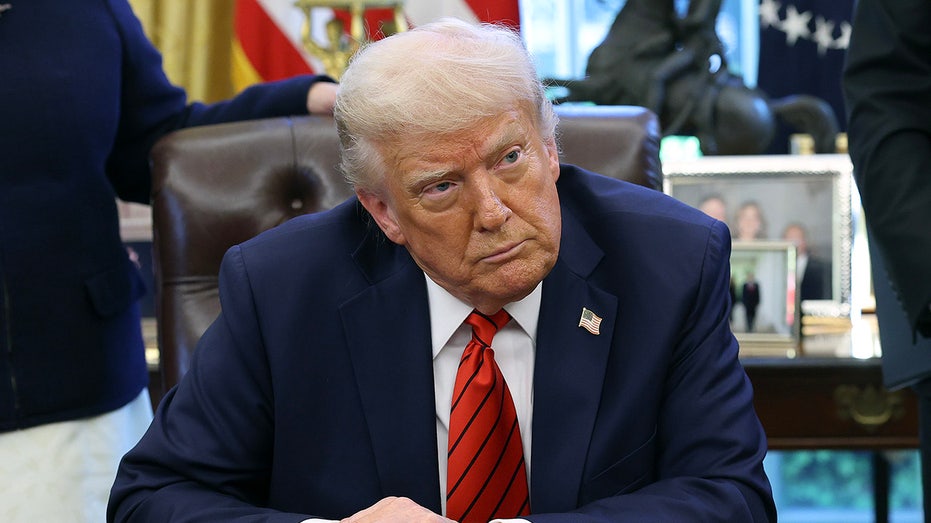Trump Reaffirms Commitment to Iran Nuclear Stance: 'Will Not Allow Any Uranium Enrichment'
President Trump denies U.S. proposal on Iran's uranium enrichment amid ongoing nuclear negotiations.

President Donald Trump took to social media Monday evening to stress his administration’s firm stance regarding Iran’s nuclear ambitions, declaring that the United States will not permit Tehran to engage in "any enrichment of uranium." The statement comes as nuclear negotiations have reached fresh levels of tension, with speculation swirling over possible concessions from Washington.
The President’s remarks appeared to directly address recent reports alleging that a secret U.S. proposal might allow Iran to continue "limited low-level uranium enrichment" on its own soil for an unspecified period. While the authenticity of such a proposal could not be independently confirmed, granting even minimal enrichment rights would contradict public comments previously made by key figures, including Special Envoy Steve Witkoff, Secretary of State Marco Rubio, and President Trump himself, all of whom have consistently voiced opposition to Iranian enrichment activities.
Iran, for its part, has remained unwavering in its position. Senior officials have maintained that the country possesses an inherent right to enrich uranium, citing both national sovereignty and the necessity of nuclear energy development. During a Monday press conference in Egypt, Iranian Foreign Minister Abbas Araqchi reiterated this standpoint, stating his forthcoming response to the rumored U.S. proposal would reflect the "principles of the Iranian nation." He declined to elaborate on the specifics of the ongoing talks.
Another element reportedly under discussion is the potential formation of a regional consortium for uranium enrichment, which would include Iran as a member. Proponents argue this could satisfy Iran’s need for enriched uranium while introducing greater oversight and transparency. However, Iranian Foreign Ministry spokesman Esmaeil Baqaei dismissed this offer as insufficient, insisting, "Such an initiative cannot replace enrichment inside Iran." He noted that while participation in a regional effort was not opposed in principle, it could not serve as an alternative to domestic enrichment capabilities.
The White House has yet to outline a clear timeline for continued negotiations, even as security officials warn that Iran may be leveraging talks as a delaying tactic. With the expiration of U.N. snapback sanctions looming in October, concerns are mounting among U.S. allies regarding the implications for regional stability and nuclear nonproliferation.
On Tuesday, Iranian officials repeated their commitment to dialogue but signaled no intention of capitulating to U.S. demands. "Iran won’t leave the negotiating table while protecting its national interests," stated government spokesperson Fatemeh Mohajerani. She added pointedly, "All scenarios are on the table. We are prepared for everything."
The latest developments underscore the deep mistrust and complex dynamics at play as both nations attempt to navigate the high-stakes future of Iran’s nuclear program. With neither side willing to concede core issues, prospects for a breakthrough remain uncertain.




